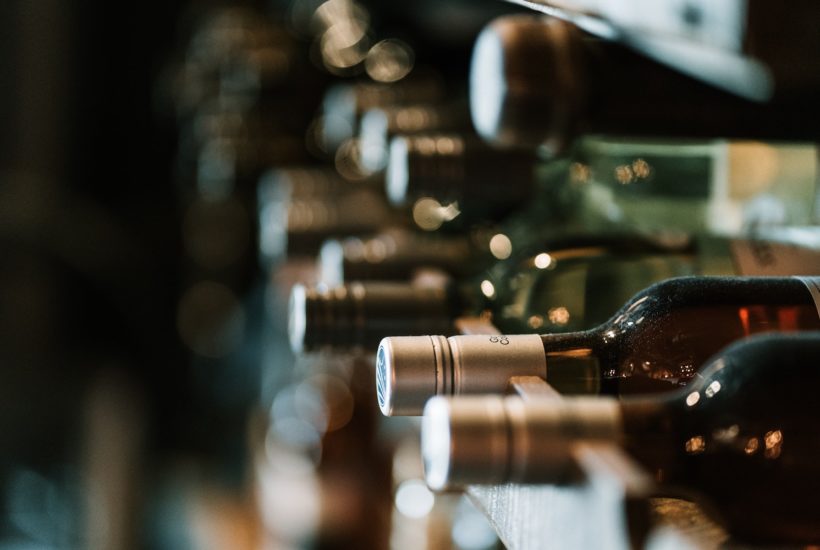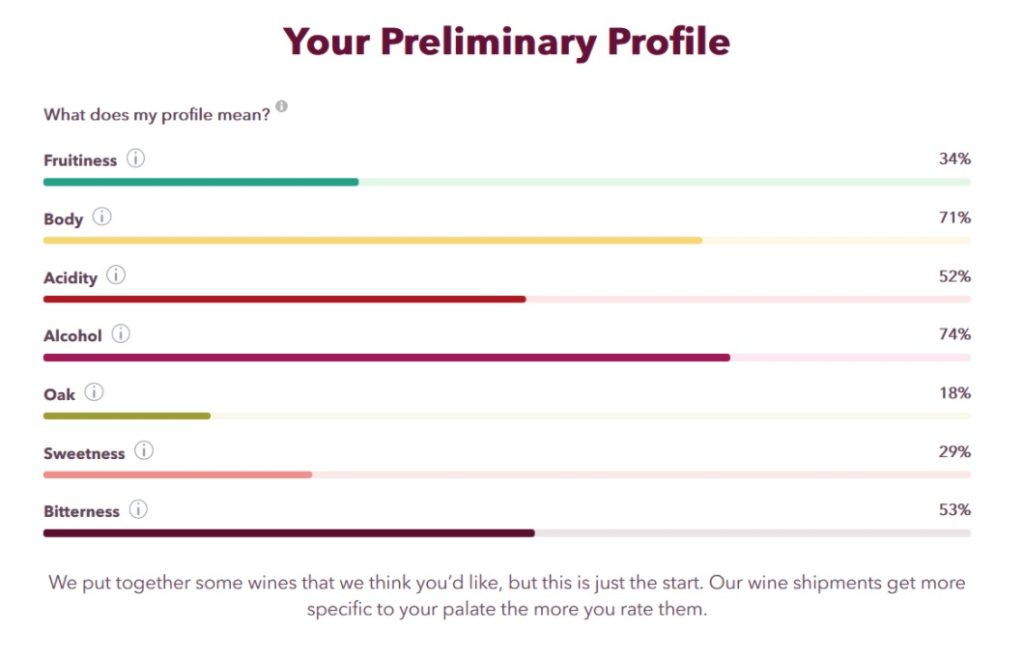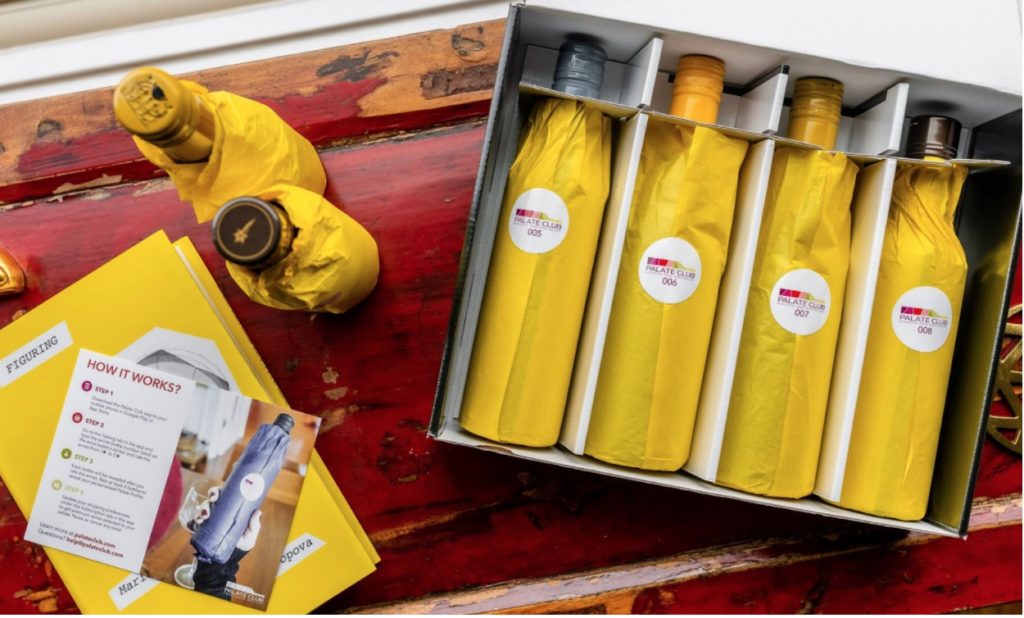Business
Why Palate Club’s “Netflix for wine delivery” algorithm is a watershed moment for the wine industry
The wine industry is facing a number of difficult challenges. High competition, opaque marketing practices, and fewer routes to market both harm the wine drinker’s experience and threaten the industry as a whole. Palate Club is set to use its wine delivery algorithm to help shine a light on the industry and bring it into the 21st century.

Even before COVID-19 the wine industry was not having an easy time of it. The North American wine market was facing oversupply problems, millennials weren’t buying as much wine as anticipated, and competition in the adult beverage market was heating up. Then COVID-19 hit and the slow transition into home wine delivery became the most important challenge facing the industry. This is where Palate Club, and its Netflix-style personalized wine delivery algorithm come into play.
The Wine Industry is beset by challenges
The wine sector faces a number of severe pain points in 2020. The biggest of which is undoubtedly competition and contracting routes to market. The number of wineries in the United States continues to grow consistently and this has created an increasingly competitive environment. This is without factoring in the fact that millennials have shown an increasing preference for premium spirits and craft beers, further cutting into the wine sector’s market share.
Another key problem is that wine is a comparatively expensive alcoholic beverage and it can be difficult for consumers to find wine that they actually enjoy. Wine preferences vary wildly and “point inflation” in reviews mean that it’s becoming difficult to find a bottle you enjoy. Add in confusing industry standards, broadly inaccessible terminology, and pre-existing bias and you have a tough sell.
Then you have the elephant in the room, COVID-19. Lockdowns and the increasing risk of entering public spaces mean that even more routes to market have been closed off. This is likely to accelerate the de-regulation of interstate wine delivery in the United States and put increasing pressure on wineries to compete with the likes of Amazon. Despite this there is now a unique window of opportunity for wineries to take advantage of emerging technology and get a first mover advantage
Palate Club is revolutionizing home wine delivery
Home wine delivery in the United States has traditionally had two key problems. The first is that it is notoriously slow and the second is that available inventory is typically poor. The startup Palate Club has built a solution to solve all the key pressure points facing the wine industry by focusing on the problems facing the average wine drinker.
The first is that the company’s wine shop and tasting kit offers a selection of high quality wines that can be delivered to the majority of the U.S. The company also offers the option to create a recurring subscription of different wines that are tailored to your tastes. This helps consumers access high quality products with minimal cost.
The next point, and this is the game changer, is that the company doesn’t have crowd-sourced wine reviews. The wines are selected by talented sommeliers but they are displayed by other customer’s ratings. Instead wines are sorted by a percentage figure that represents how closely the wine matches your tastes. The only scores that are considered are your personal ratings for each bottle.
Wine matched to your individual preference
Rather than taking an Amazon approach and relying on other people’s reviews Palate Club opts to lean into personalization. When you first enter the site you are asked to fill out a wine quiz which determines your baseline palate.

This data is then used to recommend an initial selection of wine. As you purchase and personally rate more wine a user’s profile becomes increasingly accurate. These recommendations are based solely on a single user’s preference and activity and are not crowdsourced through other users’ reviews.
By focusing on personalization Palate Club have neatly solved the wine industry’s biggest challenge. Many drinkers balk at purchasing premium wine as it is difficult to ensure you will actually enjoy the bottle. Many of us have spent $40 on a bottle of wine only to find that we don’t enjoy it. By ensuring the wine you purchase is based on your taste profile Palate Club enables you to take risks, and enjoy new experiences, safe in the knowledge that you are getting good value for money.

This in turn means that wine companies have a new route to market. They will reach customers who may not have realized they enjoy Merlot, and be able to deliver a premium product directly to their customer’s front door. This hugely increases their potential visibility and will potentially provide a way for independent wineries to secure a following before the likes of Amazon are able to break into the wine delivery market.
Better for wineries, better for wine drinkers
The wine industry is entering a unique phase. While many wine industry followers are rightly concerned about falling market shares and oversupply there is a unique opportunity on offer. Independent wineries that embrace wine tech startups like Palate Club will be able to cut through a lot of the difficulties the industry is facing and hopefully beat retail giants to the punch.
Palate Club’s personalized solution also helps to relieve many of the pressure points facing the consumer. By making premium wine more accessible Palate Club will help reverse the drink’s declining market share and help introduce thousands of drinkers to the amazing experiences that are on offer.
—
(Featured image by Hermes Rivera on Unsplash)
DISCLAIMER: This article was written by a third party contributor and does not reflect the opinion of Born2Invest, its management, staff or its associates. Please review our disclaimer for more information.
This article may include forward-looking statements. These forward-looking statements generally are identified by the words “believe,” “project,” “estimate,” “become,” “plan,” “will,” and similar expressions. These forward-looking statements involve known and unknown risks as well as uncertainties, including those discussed in the following cautionary statements and elsewhere in this article and on this site. Although the Company may believe that its expectations are based on reasonable assumptions, the actual results that the Company may achieve may differ materially from any forward-looking statements, which reflect the opinions of the management of the Company only as of the date hereof. Additionally, please make sure to read these important disclosures.

-

 Africa6 days ago
Africa6 days agoMASI Surge Exposes Market Blind Spot: The SAMIR Freeze and Hidden Risks
-

 Crypto2 weeks ago
Crypto2 weeks agoBitcoin Rebounds Above $70K as Crypto Markets Show Fragile Signs of Recovery
-

 Crypto3 days ago
Crypto3 days agoIntesa Sanpaolo Signals Institutional Shift With Major Bitcoin ETF Investments
-

 Biotech1 week ago
Biotech1 week agoEurope Launches Personalized Cancer Medicine Initiative

























